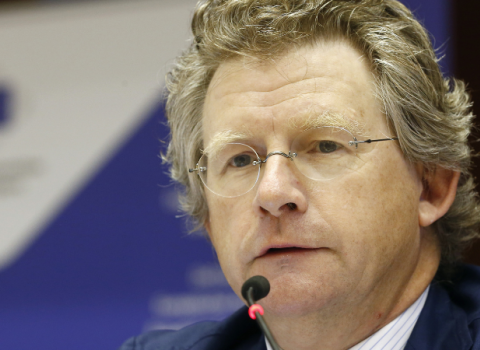The continuing roll out of lump sums across Horizon Europe is coming to the €10B European Innovation Council in 2024. Meanwhile, EU auditors are calling for ‘technical changes’ to this approach to disbursing grants

The roll out of lump sum funding in Horizon Europe is picking up speed, with the European Innovation Council (EIC) expected to be next to adopt the approach.
The new approach to EU research funding will apply to grants awarded by all three EIC-run programmes – Pathfinder, Transition and Accelerator. According to insiders, under the 2024 EIC work programme, each of the schemes will have one lump sum call (that will include Transition, which only runs one annual call).
The move will be part of a big-scale roll out, bringing the percentage of lump sum grants awarded under Horizon Europe at the end of 2024 to as much as 30%. This year, the percentage of lump sum funding is expected to fall somewhere between 10 and 15%, up from just 2%, or €306 million, at the end of 2022.
The European Commission began the move to lump sum funding in the €95.5 billion Horizon Europe research programme in 2018, as a less bureaucratic alternative the real cost reporting. Lump sum grants are paid without the beneficiaries having to file timesheets and report on each item of spending. With their adoption, the Commission hopes to reduce bureaucratic overheads and cut high error rates in EU spending on research.
However, the move hasn’t been particularly popular. The initial pilot in the last few years of the previous Horizon 2020 research programme attracted a lot of criticism, as many believed conclusions from the small-scale trial were drawn too early, before the projects were concluded. Since then, many remain sceptical.
It’s no different with the EIC, the €10 billion innovation fund which awards grants and equity funding (which is not subject to lump sums allocation), to start-ups, innovators and researchers. The roll out is not official yet but some of the first start-ups to hear about it are worried they might have to do more work in the application stage. With lump sum funding, the costs are expected to be more thoroughly described in the proposal than they are in traditional real cost reporting applications.
Grant consultants, who help companies apply to the €7 billion Accelerator programme for start-ups, believe the roll out may not the best approach to funding young companies for many of whom EIC grants are often the first big chunk of money they receive.
“Many times SMEs lack internal monitoring and cost reporting helps them structure financial management,” says Alicja Grzegorzek Carrascosa, vice-president of the European Association of Innovation Consultants (EAIC). “It presents higher risks of misusing funds.”
For consultants, lump sums are not an issue, she says. But the extra planning and detail that must go into a lump sum application may pose challenges to the companies applying. “They will need to plan the budget in advance and sometimes it’s challenging to go in detail,” says Grzegorzek
It is yet to be seen how researchers in universities, key EIC Pathfinder and Transition programme beneficiaries, will react to the roll out.
Auditors’ verdict
The roll out is at full speed but there are improvements to be made to the approach according to EU auditors who looked at lump sum use in Horizon Europe in their report on the 2022 EU budget published on Wednesday.
They found three big technical issues with the Commission’s use of lump sum funding that they want fixed in the coming months: define clearer requirements for implementation, including what elements of each work package trigger payment; ensure evaluators use relevant benchmarks to assess proposals; and define the scope of ex-post controls.
Going forward, the auditors want the Commission to evaluate the lump sum approach in the mid-term evaluation of Horizon Europe, due by 2025, to see if all types of Horizon projects are suited to lump sum funding, as the Commission believes.
They’re also uncertain that high-budget projects are suitable for the approach and want consideration of whether a maximum amount should be fixed for such grants.
The work on the evaluation, which will feed into the Horizon Europe mid-term review, has already started at the Commission, insiders confirmed.
In the meantime, the roll out of lump sums is picking up pace. There are no set plans for beyond 2024, but the Commission forecasts that by the end of Horizon Europe up to 50% of the grants will be handed over as lump sums.
There’s political support for it too. The new research and innovation commissioner Iliana Ivanova, and former EU auditor, named simplifying cost options and the roll out of lump sums as one of her priorities during her hearing for the top research job at the European Parliament in September.
The roll out of lump sums at the EIC will likely be made official when the Commission adopts the EIC work programme for 2024, detailing next year’s calls, their scope and budget. This is expected in the coming weeks.





 A unique international forum for public research organisations and companies to connect their external engagement with strategic interests around their R&D system.
A unique international forum for public research organisations and companies to connect their external engagement with strategic interests around their R&D system.